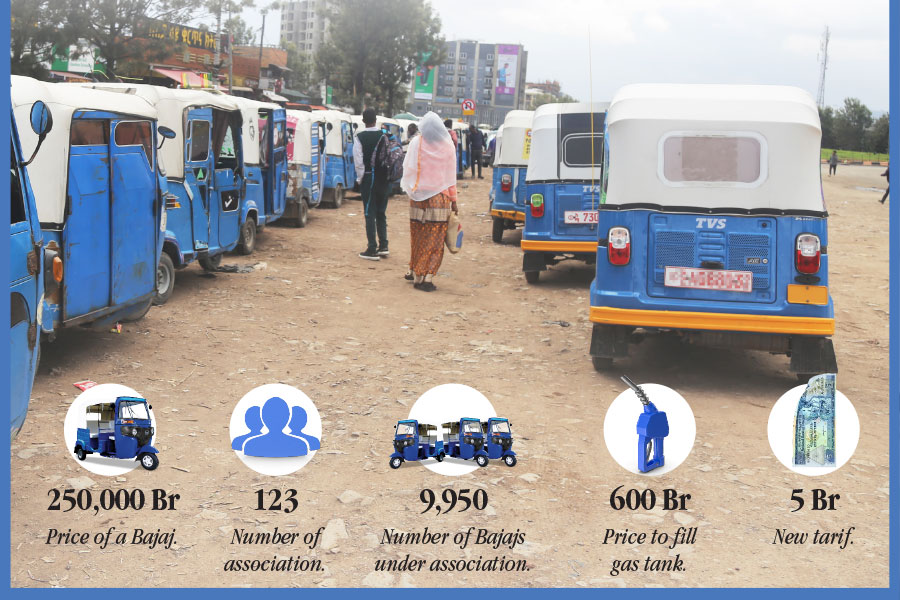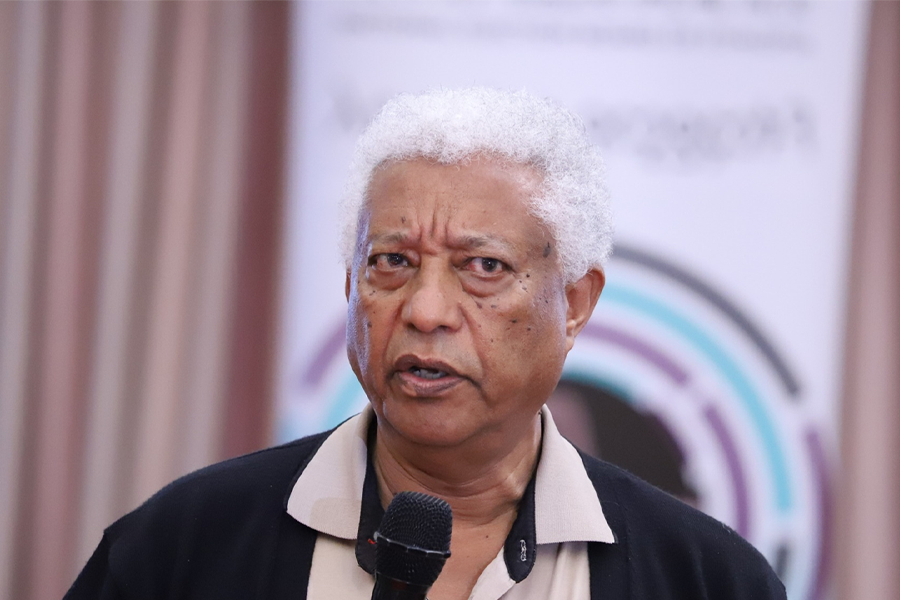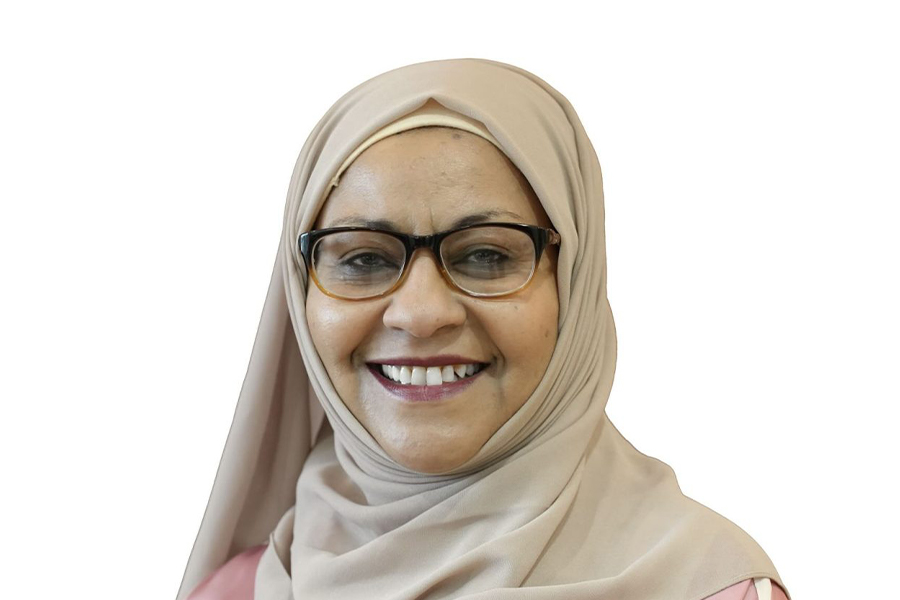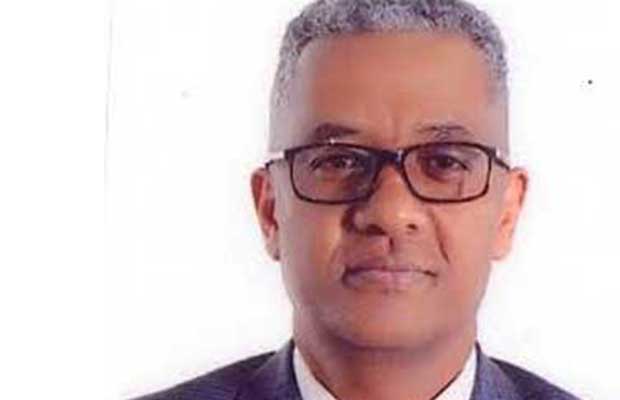
Agenda | Nov 19,2022
In a year marked by remarkable growth, Nyala Insurance surged ahead, buoyed by impressive gains in investment income and life insurance. While navigating fierce industry competition and regulatory constraints, the firm defied conservative critiques, with its executives steering Nyala to a rise in gross written premiums. This was despite economic headwinds evident as its liquidity soared and paid-up capital climbed, positioning Nyala as a formidable contender against competitors like United and Nile insurance firms.
Yet, the sharp rise in claims paid, driven by soaring costs, proved relentless in the insurance industry.
However, the company netted 273.31 million Br in profit, a 23.9pc growth from the previous year. This positioned it among competitors such as Nile Insurance's 298.3 million Br, and Global Insurance's 67.1 million Br, though United Insurance outpaced it at 327.02 million Br.
Incorporated in 1995 with a seven million Birr paid-up capital, Nyala Insurance has expanded its six founding shareholders' base to 66 as of last year. During the general assembly meeting in December at the Sheraton Addis Hotel, these shareholders celebrated a 5.67pc surge in Earnings Per Share (EPS), translating to 35.4pc, nearly three percentage points higher than the industry average for private insurers.
Board Chairwoman Sara Surur (MD) attributed the company's continued success to the "effective implementation" of a strategic plan.
Nyala’s profit growth stemmed from substantial increases in investment income and the life insurance business, with gross written premiums rising 46.3pc to approximately 1.33 billion Br. The figure is noteworthy compared to the industry average of 903.2 million Br, excluding Zemen Insurance. It also represented five times Global Insurance's 290 million Br, nearly 400 million Br higher than Nile Insurance's 938.1 million Br, and 198 million Br short of United Insurance's 1.51 billion Br.
London-based financial analyst Abdulmenan Mohammed (PhD) noted that shareholders have much to celebrate in a highly competitive industry, describing Nyala's success as "instrumental in the growth" seen in motor, fire, bond, and other insurance categories.
“The gross written premium is quite impressive,” he told Fortune.
However, Abdulmenan observed a conservative tendency in Nyala's retention of gross written premiums, with significant ceding to reinsurers. Nyala's ceding rate was 44.6pc this year, slightly higher than the 42.7pc of the previous year. According to the financial analyst, Nyala's executives must combine increased retention rates and sound risk management policies to address the overall risk.
“Observation of several years indicates that,” said Abdulmenan.
Nyala’s CEO, Yared Molla, who has run the firm for the past 11 years, contested this observation, arguing that the type of policies underwritten determines retention rates and are compliant with the National Bank of Ethiopia's (NBE) regulations.
“There is no cookbook formula for this,” Yared told Fortune.
He argued that if the restriction on the amount that insurance companies can invest in other assets were removed, Nyala and other insurers could have earned more income. Nyala's investment income grew by 27.6pc to 261.1 million Br, while total operating and financing expenses increased by 21.8pc to 270.82 million Br.
Despite the growth in gross written premiums, Abdulmenan pointed out that a lower retention rate, substantial claims paid, and provisions set aside undermined Nyala's underwriting surplus, which fell by 6.5pc to 310.82 million Br. Commission earnings rose by 22.5pc to 113.14 million Br, and the company also paid more in commissions, with an increase of 56.4pc to 44.67 million Br.
A considerable rise in claims paid and other provisions was noted, with an increase of 77pc to around 370.81 million Br, lower than United Insurance's 463.54 million Br and Nile Insurance's 443.5 million Br, in an industry where claims average around 341.1 million Br. Yared attributed the rise in motor and life insurance claims to skyrocketing prices of vehicle spare parts, maintenance costs, and medical expenses.
“We are still below the industry loss ratio,” he noted.
Yared, who has an impressive 30-year career in the insurance industry, studied management at Addis Ababa University and did his postgraduate studies in Business Administration at Greenwich University in England. His professional journey began at the state-owned Ethiopian Insurance Company, where he rose to deputy CEO. He later joined Ethiopian Health Insurance and gained international experience as a risk management consultancy executive at a US-based company. He is a PhD candidate at the Paris School of Business.
Under Yared's managment, Nyala's total assets increased to 3.82 billion Br, with time deposits of around 585.82 million Br derived from shares and bonds. Close to 108.76 million Br in property investments were made, accounting for 45.7pc of Nyala's total assets.
According to Fasil Asfaw, manager of a branch in the 22 Mazoria Wuha Limat area, his branch had a strong record in premiums and benefited from corporate customers.
However, Fasil noted that fierce competition and a general slowdown in investment throughout the economy posed challenges during the year. A general lack of appetite for non-mandatory insurance products, excluding marine and third-party insurance, restricts industry growth.
“Customers have become extremely sensitive to prices,” Fasil told Fortune.
Nonetheless, after 12 years as branch manager, he feels that Nyala's growth, despite the challenges presented by security issues and a deceleration of economic growth, positions it as a formidable player in the industry.
A ratio analysis of Nyala's balances revealed increased liquidity in absolute and relative terms. Cash and bank balances rose by 67pc to 555 million Br, with the ratio to total assets increasing by 3.3pc to 14.5pc.
“Nyala has a reasonably high liquidity level,” Abdulmenan observed.
Nyala's paid-up capital grew by 17.9pc to 830 million Br, nearly threefold of Global Insurance's 242.5 million Br, short of Nile Insurance's 834 million Br, and 10 million Br shy of United Insurance. Its capital and non-distributable reserves represent 29.9pc of its total assets, indicating a solid capital base.
“That should be used to increase shareholders' returns,” said Abdulmenan.
Shareholders were not available for comment.
PUBLISHED ON
May 18,2024 [ VOL
25 , NO
1255]

Agenda | Nov 19,2022

Fortune News | Apr 09,2023

Commentaries | Mar 07,2020

Radar | Sep 14,2025

Life Matters | Jul 27,2024

Fortune News | Oct 27, 2024

Radar |

Exclusive Interviews | Jan 05,2020

Fortune News | Aug 09,2025

Life Matters | Dec 02,2023

Dec 22 , 2024 . By TIZITA SHEWAFERAW
Charged with transforming colossal state-owned enterprises into modern and competitiv...

Aug 18 , 2024 . By AKSAH ITALO
Although predictable Yonas Zerihun's job in the ride-hailing service is not immune to...

Jul 28 , 2024 . By TIZITA SHEWAFERAW
Unhabitual, perhaps too many, Samuel Gebreyohannes, 38, used to occasionally enjoy a couple of beers at breakfast. However, he recently swit...

Jul 13 , 2024 . By AKSAH ITALO
Investors who rely on tractors, trucks, and field vehicles for commuting, transporting commodities, and f...

Oct 18 , 2025
The political establishment, notably the ruling party and its top brass, has become p...

Oct 11 , 2025
Ladislas Farago, a roving Associated Press (AP) correspondent, arrived in Ethiopia in...

Oct 4 , 2025
Eyob Tekalegn (PhD) had been in the Governor's chair for only weeks when, on Septembe...

Sep 27 , 2025
Four years into an experiment with “shock therapy” in education, the national moo...